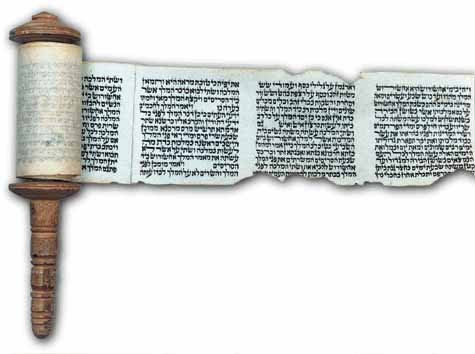Schedule for Shiva Asar Tamuz and Rav Ote's Guide: Who Must Fast and Who is Exempt
- -

- 8 ביולי 2020
- זמן קריאה 4 דקות
עודכן: 9 בספט׳ 2020
Davening and the lecture can be seen on ZOOM
Wednesday night July 8 Lecture in English by Professor Daniel R. Schwartz : 7:00 PM
introduced by Rabbi Mordechai Cohn
TOPIC :: What Caused the Destruction of the 2nd Temple?
Daniel R. Schwartz is a professor of Jewish History at the Hebrew University of Jerusalem and is an international expert on the Second Temple Period (second Commonwelath). His book Agrippa I won the 1988 Arnold Wischnitzer Prize. His Second Book of Maccabees, an annotated translation into Hebrew of 2 Maccabees, was published in 2004, followed by a translation into English in 2008.
Fast begins: 3:52 AM Shacharit: 5:55 (not on ZOOM) and 6:50 AM Mincha: 7:20 PM Maariv: 8:09 PM Fast ends: 8:09 PM
מי פטור מהצום / Who Is Exempt From Fasting
י"ז בתמוז
הרב יוסף אות
סיכום השיעור של הרב אות בנושא רמת החיוב של תענית י"ז בתמוז:
להלכה הצומות על החורבן בזמן הזה הם מתוקף מנהג בישראל ולא מתקנת הנביאים (גמ' ראש השנה דף יח ע"ב, רמב"ן, מגיד משנה בדעת הרמב"ם, הגר"א, שו"ת הרמ"ץ אורח חיים לט, וכו) ועל כן כאשר יש צורך ניתן להקל.
v ככלל, אדם בריא חייב לצום.
הפטורים מן הצום:
חולה שיש בו סכנה. וחולה שאין בו סכנה.
חולה שנתרפא אך עדיין מרגיש חלש (לב יודע מרת נפשו).
מי שנמצא בקבוצת סיכון (חולי לב וריאה, מי שנוטל תרופות מצילות חיים, סכרת וכו').
מי שנוטל תרופות כל יום צריך להמשיך לקחת את תרופותיו (אם אפשר - ללא שתייה או אוכל, אם צריך לאכל ולשתות לפי הוראות הרופא - יש לאכול ולשתות)
זקנים שאין להם כח וקשה עליהם מאד לצום.
אישה שהפילה ולד ומבחינה פיזית עדיין לא החלימה.
מניקה אם היא מרגישה שאינה יכולה לצום כי תאבד בכך חלב אם.
יולדת תוך שלושים יום ללידתה מוגדרת כחולה שאין בה סכנה ופטורה.
אישה בהריון המרגישה חולשה יכולה לשתות מים ואם צריך מותר לה גם לאכול.
בתקופת קורונה (שהינה מחלת דרכי הנשימה) יש כמה מצבים שלהם עלינו להיות ערניים:
חולה קורונה שיש לו סימפטומים, (שיעול, קשיי נשימה, חולשה, אינו חש טעם וריח) גם אם אין לו חום , פטור מלצום.
אדם שהוצרך להיכנס לבידוד: אם הוא מרגיש בריא יש לצום. אם הוא מפחד, ומתפתח בעקבות זאת כאבי ראש או חרדה, פטור.
אדם שמרגיש טוב אך יש לו חום, פטור.
תפילת עננו למי שאכל ושתה:
אדם שנצרך לאכול או לשתות משך הצום לפני תפילת מנחה, לא יתפלל תפילת עננו שבתפילת מנחה של התענית.
אבל אם הוא אכל פחות מכזית או שתה פחות מ75 מ"ל משקה אין זה נקרא אכילה ויכול לומר תפילת עננו.
The following is a summary of Rav Ote’s shiur about the obligation to fast on the 17th of Tamuz.
According to Halacha, the fasts commemorating the destruction during this time are considered a matter of custom and not prophetic decree (see the Gemara in Rosh Hashana 18b, Ramban, Maggid Mishna in the Rambam’s opinion, Shut Haramatz Orach Chaim 38, etc.) and therefore, when necessary, we may be lenient.
As a general rule, a healthy person must fast.
The people who are exempt from fasting are:
One who is ill whose life is in danger. One who is ill whose life is not in danger.
One who has recovered but still feels weak (“the heart knows its own bitterness”).
One who is in a high-risk category (one who has heart and lung complications, one who is taking life-saving medication, one who has diabetes, etc.).
One who takes medication daily must continue to take it (if possible, without eating or drinking, however if according to doctor’s orders the medication must be taken with food or drink, then one must do so.)
Elderly people who are weak and frail and are not strong enough to fast.
A woman who had a miscarriage and still feels the physical effects.
A woman who is nursing if she feels that fasting will cause her milk to dry up.
A woman who has given birth within the last thirty days is considered one who is ill whose life is not in danger, and therefore she is exempt.
A woman who is pregnant who feels weak, may drink water and if necessary, may eat as well.
During this period of Corona (which is a respiratory disease), there are a few extra situations of which to be aware:
One who is sick with Corona, who is exhibiting symptoms, such as a cough, trouble breathing, weakness, loss of taste and smell, even if he does not have fever, is exempt.
A person who was ordered to go into isolation on the chance that perhaps he came into contact with someone who was sick: if he feels healthy, he should fast. If he is so frightened, to the point that he develops headaches or anxiety, he is exempt.
One who feels healthy but has fever, is exempt.
Tefillat Aneinu in Mincha:
One who ended up eating or drinking during the fast before Mincha does not recite the prayer Aneinu in the Amida. However if he ate an amount of food less than the size of an olive or drank less than 75 m”l of liquid, it is not considered eating and drinking, and he does say Aneinu.
צום מועיל לכולם!
בשורות טובות ישועות ונחמות ובריאות איתנה לכולם!
הרב יוסף אות
Tzom Kal




תגובות